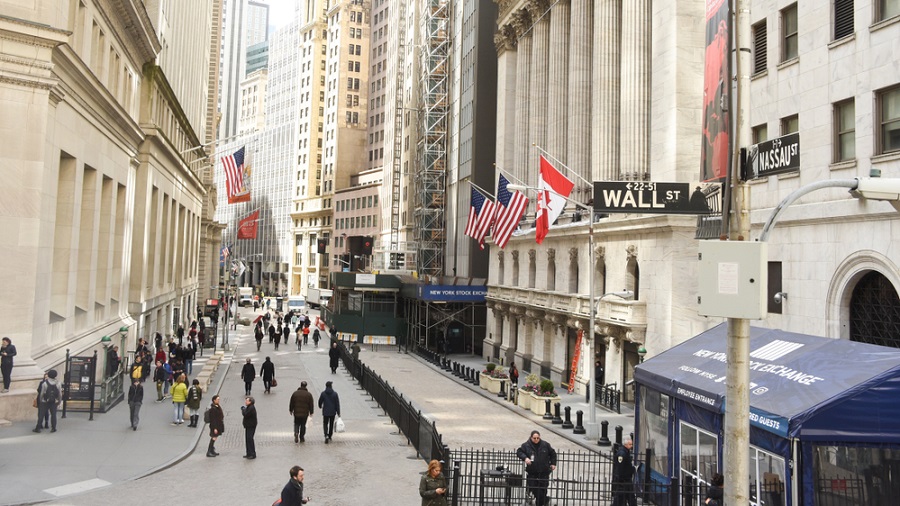If you have followed financial markets closely over the last week or so, you may be experiencing a severe case of whiplash. It’s not over yet.
Markets are often said to predict the future with a collective wisdom that individual analysts can’t match. But what they have been doing instead is reacting to momentary excitement with the unbridled emotions of a 3-year-old child. Consider the extreme mood changes exhibited by traders as the U.S. election dominated the news.
First, in the last week of October, as the election approached, the stock market fell sharply. The 6.5% decline of the Dow Jones industrial average that week was the worst pre-election performance on record, according to Ned Davis Research, an independent markets research group, which suggested that the markets expected a high degree of election chaos.
That baleful judgment made a lot of sense to me, so I was startled to see the market outlook become abruptly bullish. Stocks started to climb in the lead-up to Election Day, and as the polls began to close across the United States on Tuesday night and the counting began in earnest, stock futures prices began to levitate further, while Treasury yields rose.
But why? The prevailing chatter on financial channels for much of Tuesday was suddenly that a Democratic “blue wave” was building — one that would lead to a presidential victory for Joe Biden and Democratic control of Congress, and that would culminate in a torrent of government spending and borrowing in 2021. All that money would bolster stock prices and raise the risk of inflation, or so the story went. News coverage at that moment was far more circumspect about Democratic prospects. Did the various financial markets know something that the rest of the world didn’t?
Apparently not. As the results for individual states came in Tuesday night and President Donald Trump secured the electoral votes of Florida, visions of an overwhelming “blue wave” apparently evaporated in the markets: The broad stock futures market plummeted, and Treasury yields fell.
I absorbed that information, only to discover that, undaunted, some traders returned to another, well-travelled road to profits: Futures for the tech-heavy Nasdaq rose. Behemoths like Google, Facebook, Microsoft and Apple, which have buoyed portfolios for months, would, presumably, continue to fare well during a second Trump administration, with a Republican Senate, or so that logic assumed.
Those assumptions didn’t last either. With Trump vowing to contest the election results, the probability of election chaos rose again, and the markets reversed course. That only brings us to early Wednesday morning. These wildly gyrating appraisals showed that the markets were “sort of efficient, but also sort of crazy,” in the words of James Mackintosh, writing in The Wall Street Journal.
Sort of crazy is what I would emphasize. By the middle of the day on Wednesday, as Biden’s campaign eked out strong tallies in Wisconsin and Michigan, another form of market exuberance took hold. This one assumed that the United States would eventually end up with a Democrat in the White House, with Republican control of the Senate. In a word, gridlock.
What bliss! As is well known on Wall Street, this specific alignment — a Democratic president with Republican control of at least one chamber in Congress limiting the president’s freedom of action — has been wonderful for the stock market.
In fact, it has been the best of all political variations for the stock market since 1900, with annualized gains of 10%, according to data from Bespoke Investment Group. The worst alignment has been the current setup, a Republican president with Democratic control of a chamber of Congress, with annualized returns of a mere 1.8%.
So perhaps it shouldn’t be surprising that the stock market went on a tear. Through Thursday, it was the best weekly performance in seven months, despite those rocky moments during the early stages of vote counting. Stock futures plunged overnight, then moved upward on Friday morning as the vote counting in Pennsylvania showed a Biden lead, and they oscillated throughout the day. Expect these mood swings to continue.
A divided government, one possible outcome of the still-fluid election, may not seem to be an obvious boon for a country in which more than 235,000 people have died of the coronavirus or other causes linked to it, and more than 100,000 are found to be infected every day; a country in the grips of a deep recession, one that has been all too obviously rived by deep political, social and racial conflicts.
Trump has made it clear repeatedly that whatever the vote tallies may say, these conflicts aren’t over.
The markets have been saying something, no doubt. But what?
I’d say they have been expressing deep confusion and provisional relief: bafflement at the combustible political situation in the United States, and satisfaction that matters are not (yet) much worse.
Why should we expect that the markets could predict the future of American politics? Common sense tells us otherwise. Financial markets have no superpowers. They embody the collective judgment of thousands of mortals who are doing their best but whose flaws don’t vanish when they generate market prices.
Despite these limitations, the ability of markets to generate wealth over the long run makes participation in them worthwhile for people who are not gamblers or professional traders. As the Columbia professor and great value investor Benjamin Graham told students like Warren Buffett: “In the short run, the market is a voting machine but in the long run it is a weighing machine.”
Over the long run, asset allocation has been effective: a broadly diversified mix of stocks and bonds, mainly using low-cost index funds. There are constant calls for fancier approaches. I don’t buy them any more than I accept the ability of the stock market to predict the future of American politics.
New York Times News Service











